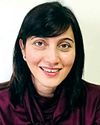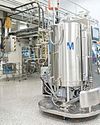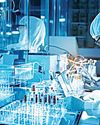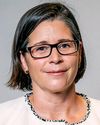Invincible Diabetes Turns APAC Into Pharma Goldmine“?
BioSpectrum Asia
|November 2022
There are over 235 million diabetic patients in Asia. China and India account for almost half of the world’s diabetic population. By 2030, without intervention, both China and India combined will have nearly half a billion diabetics. These are grim figures but for pharma firms, they represent a huge opportunity, and big pharma firms are spending billions in search of the next blockbuster drug for diabetes, according to the estimates from Singapore-based Asian Diabetes Prevention Initiative (ADPI). The diabetes care drugs market is highly fragmented in Asia Pacific (APAC) region with a few major manufacturers gaining presence in major countries of the APAC market, while the remaining market comprises other local or region specific manufacturers. Mergers and acquisitions that happened between players in the recent past helped companies strengthen their market presence, as well as drive innovations, helping the diabetes drugs market to increase in the APAC region. Let’s look at who owns the more significant piece of the pie and the competitive landscape of diabetes treatment in the region.

On October 10, 2022, Chinese firm Hua Medicines snagged the first-in-class nod in China for a diabetes drug Dorzagliatin, a glucokinase activator (GKA). This ends a 10 year drought in type 2 diabetes in terms of lack of ‘medicines with new mechanisms of action’ entering the market. This is welcome news for the region which has 60 per cent of diabetics in the world. It is no wonder then that the largest number of ongoing clinical trials for type 2 diabetes are conducted in the region, with 665 ongoing clinical trials.
Over the past few decades, Asian countries have witnessed a rapid increase in diabetes patients, especially those with type 2 diabetes. The APAC is anticipated to experience considerable growth due to a more geriatric population and rising prevalence of diabetes mainly due to the enhanced stress level, sedentary lifestyles, smoking, and excessive consumption of alcohol that elevates the body’s sugar levels have led to the growth of the market, according to a Mordor Intelligence report.
Moreover, the production basis of certain antidiabetic drug companies in the region also boosted the market growth. However, the increasingly high cost of drugs is considered one of the major restraining factors for the market. According to the Organisation for Economic Cooperation and Development (OECD) iLibrary in APAC, about 227 million people live with type 2 diabetes and about half of them are undiagnosed and unaware of developing long-term complications. Also, according to the International Diabetes Federation (IDF) data, 90 million adults in the age group of 20-79 are living with diabetes in the SouthEast Asia (SEA) Region in 2021 which is projected to increase to 113 million by 2030 and 152 million by 2045.
Denne historien er fra November 2022-utgaven av BioSpectrum Asia.
Abonner på Magzter GOLD for å få tilgang til tusenvis av kuraterte premiumhistorier og over 9000 magasiner og aviser.
Allerede abonnent? Logg på
FLERE HISTORIER FRA BioSpectrum Asia

BioSpectrum Asia
"The next 5-years will see mRNA science evolve beyond infectious disease"
A new survey from Moderna Singapore reveals persistent vaccine hesitancy among older adults in Singapore, even as international travel and year-end gatherings increase the urgency of protection. The findings point to clear opportunities to strengthen public health, including empowering healthcare professionals as trusted messengers and promoting co-administration of vaccines.
4 mins
BioSpectrum Asia Dec 2025
BioSpectrum Asia
No Funding No Vax for TB?
The World Health Organization (WHO)'s latest updates on tuberculosis (TB) released on November 12 reveal significant progress in diagnosis, treatment, and political commitment, but also expose deep vulnerabilities—especially in the South-East Asia Region (SEARO)—related to funding gaps and the uncertain future of novel TB vaccines. SEARO remains the global epicentre of the TB epidemic, carrying more than 45 per cent of the world's TB incidence despite representing only a quarter of the global population.
2 mins
BioSpectrum Asia Dec 2025

BioSpectrum Asia
Australia builds tailored heart pump to transform heart failure care
Despite making up half of the 64 million people living with heart failure, patients with this common form have no access to heart pump treatments and are left with only medication or palliative care.
1 min
BioSpectrum Asia Dec 2025

BioSpectrum Asia
Clinical Research Trends 2026: Hybrid DCTs Set for Surge as Innovation Outpaces Regulatory Hurdles
APAC's openness to innovation, combined with its large population and low trial density, creates strong potential for expanding decentralised clinical trials (DCTs), especially for patients with limited trial access. While regulatory diversity and operational challenges will continue to hinder fully decentralised models, the region is expected to adopt more digital technologies in clinical research. As a result, hybrid DCTs will keep gaining traction, and effective management of digitally collected data will remain a central focus for data science teams.
4 mins
BioSpectrum Asia Dec 2025

BioSpectrum Asia
CSL Seqirus to localise advanced influenza vaccine manufacturing in Saudi Arabia
Australia-based CSL Seqirus and Vaccine Industrial Company have signed a Memorandum of Understanding with the Ministry of Health of Saudi Arabia to enhance the biotechnology sector by accessing advanced cellbased seasonal and pandemic influenza vaccines and localising manufacturing in Saudi Arabia.
1 min
BioSpectrum Asia Dec 2025

BioSpectrum Asia
How Sponsors Could Gain Advantage by Embracing Dose Optimisation in Asia by 2026
In 2026, oncology drug development in Asia may move away from the historical maximum tolerated dose (MTD) paradigm toward evidence-based dose optimisation. Sponsors might consider adopting strategies similar to the FDA's Project Optimus, which emphasises selecting doses that balance efficacy and safety rather than relying solely on toxicity thresholds. Doing so could improve patient outcomes and position companies favourably as regulatory expectations evolve.
1 mins
BioSpectrum Asia Dec 2025

BioSpectrum Asia
Fujifilm launches joint research with National Cancer Center in Japan
Fujifilm Corporation has signed a joint research agreement with the National Cancer Center Japan, a Tokyo-based national institution recognised for its leadership in cancer care and research.
1 min
BioSpectrum Asia Dec 2025

BioSpectrum Asia
Monash spinout RAGE Biotech secures $29 M to advance next-generation RNA therapeutics
Australia's Monash University spinout RAGE Biotech has raised $29 million in Series A funding, marking a major step toward translating RNA-based therapeutics for chronic inflammatory disease into the clinic.
1 min
BioSpectrum Asia Dec 2025

BioSpectrum Asia
Submitting clinical data to the FDA and PDMA: An efficient and compliant approach
In both the US and Japan, regulators provide an extensive set of resources detailing the rules and specifications governing submissions for marketing approval of new drugs and biologics. Fortunately, despite some differences, the regulations concerning clinical data have a surprising amount in common. It is possible that with a solid understanding of the requirements and an adherence to best practices, sponsors can develop some of the same material for submission to both countries.
2 mins
BioSpectrum Asia Dec 2025

BioSpectrum Asia
Regenerative medicines and microbiome health are emerging as exciting frontiers, with Australian companies and researchers pushing into new therapeutic approaches
After more than a year at the helm of AusBiotech, CEO Rebekah Cassidy reflects on her early priorities and the organisation’s ambitions as Australia accelerates its position in the global life sciences economy. In an email interaction on the sidelines of AusBiotech 2025, she highlights the country's progress in mRNA, cell and gene therapy, and radiopharmaceuticals, outlines emerging areas of momentum, and discusses how new partnerships and MoUs are strengthening collaboration across the biotech ecosystem. Rebekah also outlines how AusBiotech is preparing Australia for a more competitive and connected global life sciences economy and the strategic priorities shaping AusBiotech’s next chapter. Edited excerpts:
7 mins
BioSpectrum Asia Dec 2025
Translate
Change font size

